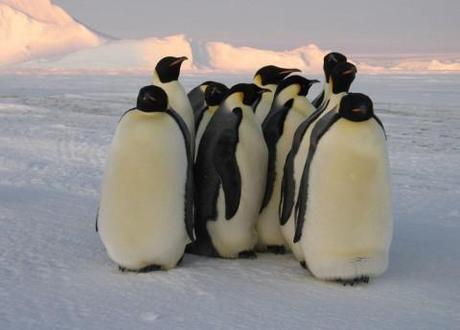
Ice age averted?
Scientists have published research suggesting human carbon emissions will prevent the next ice age. The news is likely to infuriate environmentalists while enthusing groups who oppose limiting carbon emissions.
The advent of the next ice age is already behind schedule, reported The Telegraph: “Typically there is a period of about 11,000 years between ice ages, and with the last one ending 11,600 years ago the arrival of the next already appears overdue.” Researchers suggested that this delay is due to the levels of CO2 in the atmosphere.
So if global warming is keeping us from freezing over, does that mean it’s actually a good thing?
Nothing new. Andrew C. Revkin reported for The New York Times Dot Earth blog that there is already a large body of scientific literature on the subject of whether greenhouse gases are preventing a big freeze. Revkin spoke to several researchers in the field on the matter, most of whom concluded that what’s new about the latest study is the way in which those involved have calculated the “interglacials”, which are the warmer periods between ice ages.
No cause for celebration. Anyone who uses the research to suggest there’s nothing wrong with rising carbon emissions is missing the point, Dr Luke Skinner, one of the lead researchers, told the BBC: “Where we’re going is not maintaining our currently warm climate but heating it much further, and adding CO2 to a warm climate is very different from adding it to a cold climate. The rate of change with CO2 is basically unprecedented, and there are huge consequences if we can’t cope with that.”
Permafrost woes. The research comes not long after scientists expressed concern over the potential effect of melting permafrost, which contains carbon, on the level of greenhouse gases in the environment: ”As the frost melts, that carbon will enter the atmosphere, most of it as carbon dioxide, but some of it transformed by bacteria into methane, an even more powerful heat-trapping greenhouse gas. That, in turn, will warm the planet further,” wrote Brad Plumer for The Washington Post. Plumer pointed out that scientists are unsure as to the consequences of melting permafrost, but that the overall message is gloomy: “The state of permafrost research offers one piece of evidence that current climate-change predictions seem to be overly optimistic.”

